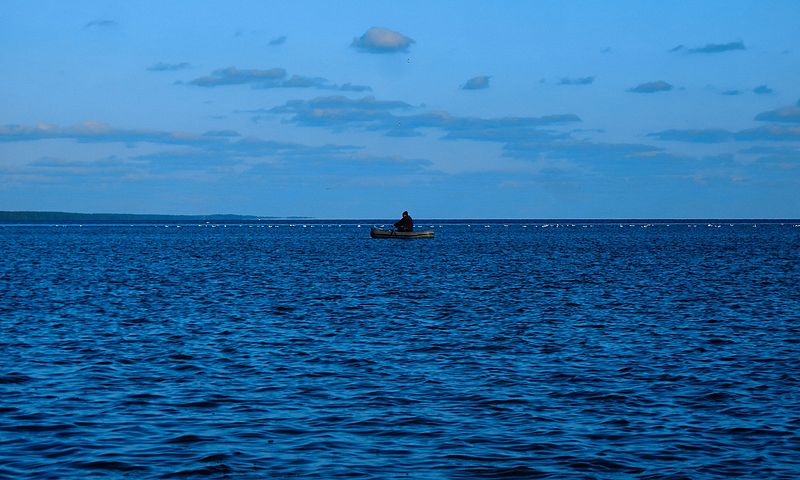
Warming waters from climate change are modifying freshwater fish communities everywhere, notably in Lake Peipsi, located between Estonia and Russia, as they favor warm-water species such as pike-perch and hinder the survival of cool-water species such as vendace and burbot.
A new study by researchers at the Estonian University of Life Sciences, the University of Tartu and the Sea Around Us initiative at the University of British Columbia, found that at the turn of the 1980-1990 decade, a shift in the Peipsi fish community took place, which coincided with a recorded shift in the regional climate regime.
To demonstrate this, the researchers used the “mean temperature of the catch” (MTC), an index computed from the preferred temperature of the species caught from a water body and the fisheries catch by species ranging from 1931 to 2019. They found that up to 1986, the MTC oscillated around 14.5°C, while from 1987 onwards, there was a strong increase of 0.85°C per year.
“This is the first time that the MTC concept is applied to freshwater species,” Daniel Pauly, co-author of the study and principal investigator of the Sea Around Us initiative at UBC’s Institute for the Oceans and Fisheries, said. “This study shows that short periods of warming and cooling prior to the late 1980s were reflected in the fish community composition of Lake Peipsi and hence in the MTC values. However, the increase of MTC since the late 1980s makes the MTC for entire periods resemble the hockey-stick figure typical of global warming studies.”

Fish communities in large shallow lakes such as Peipsi normally respond to short-term extreme weather events rather than to slow rises in yearly average water temperature. Thus, the MTC index reflects the abrupt increase in water temperature recorded at the end of the 1980s, which was linked to the collapse of the vendace population; the hot summer of 1988, which was accompanied by a severe cyanobacterial bloom and extensive fish kill, and the subsequent non-permanent ice cover and early ice-offs in 1989 and 1990, which led to the disappearance of vendace from catches in 1991.
“These events were determinant for the MTC trend of 0.85°C per decade, which is stronger than the MTC trends we have seen for the world’s Large Marine Ecosystems of 0.19 °C per decade and even for the East China and Yellow Seas, of 0.55°C per decade,” Pauly said.
These findings provide one of the reasons why both commercial and recreational catches in Lake Peipsi – Europe’s fourth-largest – have been declining from 33 kilograms per hectare in the 1930s to 15 kilograms per hectare in the 2010s. Also, they show that the MTC can be used for comparing the vulnerability to global changes of freshwater ecosystems, and not only of the marine ecosystem to which it was applied so far.
The paper “Using the ‘mean temperature of the catch’ to assess fish community responses to warming in a temperate lake” has been published in Environmental Biology of Fishes
https://doi.org/10.1007/s10641-021-01114-7


